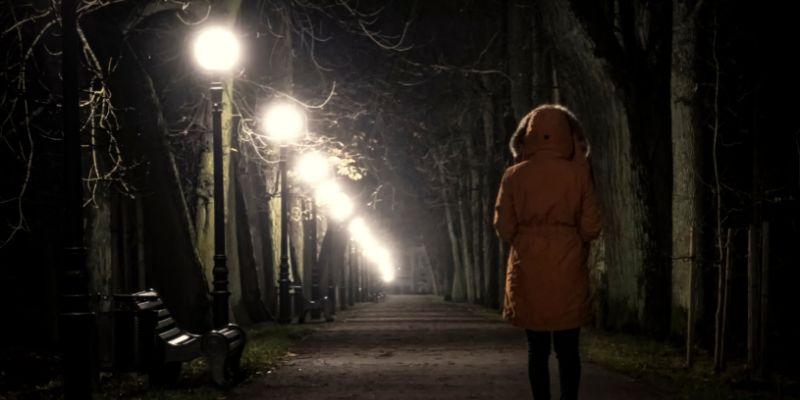
Parks in West Yorkshire should be better designed and managed so that women and girls feel safe throughout the day and after dark, according to a new study.
A team of researchers at the University of Leeds interviewed more than a hundred women and girls from across the county and found that most of them believed their local parks were unsafe. More than half felt they were very unsafe.
The study, which was funded by the Mayor of West Yorkshire, Tracy Brabin, concludes that feeling vulnerable in parks is a barrier that needs to be urgently addressed to ensure that women and girls feel able to use, enjoy and benefit from them.
Everyone has the right to feel safe in a recreational space, in any space.
Dr Anna Barker, an Associate Professor in Criminal Justice & Criminology in the University of Leeds’ School of Law led the research. She said: “Overall, we found that women and girls want parks and play spaces to be better designed and managed to be well-used, sociable places that offer a range of activities and facilities that are more welcoming to them.
“This needs to be the focus of funding and interventions in order to break down the barriers to women and girls using and feeling safe in parks.”
The report found that there is not always agreement about what makes parks feel safe but there was consensus among the women interviewed that well-used parks, especially with the presence of other women, felt safer, and that organised group activities could extend their use of these spaces, even after dark.
The girls interviewed said that secluded areas, like thick vegetation or other barriers to openness and visibility, felt unsafe and there was a general desire for help points to be installed in parks and for authorities to do more about harassment.
The researchers also interviewed professionals involved in the design, management and policing of parks and found that they shared most of the women’s concerns. They felt that a range of practical remedies, such as artificial lighting and cutting back trees and bushes, could improve women’s sense of safety.
Vital research
Alison Lowe, the Deputy Mayor for Policing and Crime for West Yorkshire, welcomed the research findings.
“The safety of women and girls in West Yorkshire is the top priority for myself and the Mayor, with the launch of the Safety of Women and Girls Strategy in November,” she said.
“We are really pleased to be able to commission this research by the University of Leeds and now funding needs to be made available by Government to ensure these safety suggestions can be implemented to ensure women and girls feel safe.
“I welcome the call for local councils to make women and girls’ safety an integral part of their park design plans and my hope is this vital research will lead to a real change in approach as to how we do things.
“Everyone has the right to feel safe in a recreational space, in any space, and these research findings, if implemented, will go some way to achieving that here in West Yorkshire.”
The report calls for more central Government funding to improve the safety of women in parks and for local councils to make women and girls’ safety integral to their park design and management plans.
Holistic approach
Professor George Holmes from the University of Leeds School of Earth and Environment, who co-authored the study, added: “We found that women and girls’ views on feeling safe in parks were shaped by broader societal issues such as misogyny, harassment and threats of violence.
“As well as the specifics of park design such as overgrown vegetation, visibility and lighting, we recommend that changes to these spaces must be part of a holistic approach to address root causes of women and girls’ feeling unsafe in public spaces.”
The team is now engaged in follow-up work with Mayor Brabin, Keep Britain Tidy and the charity Make Space for Girls, to develop new guidance for the design and management of parks to make them feel safer and more welcoming to women and girls.
Further information
The study “What Makes A Park Feel Safe Or Unsafe”, is published 7 December 2022.
Image: Adobe Stock.
For more details, please contact Kersti Mitchell in the University of Leeds Press Office by email on k.mitchell@leeds.ac.uk.